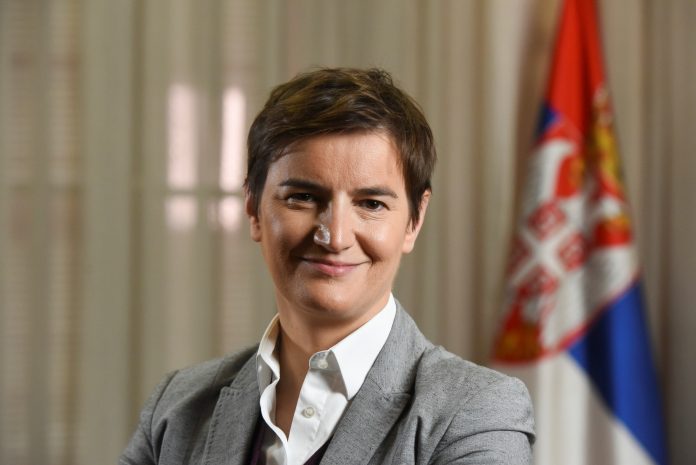Ana Brnabić, Serbia’s Prime Minister, said Serbia will continue on the path of reforms as voters favour concrete plans and proven achievements, and a broad agenda awaits the new government, according to Politico.
In response to calls by the Serbian opposition for early elections at the parliamentary and local levels, early elections were held in Serbia on 17 December 2023. Voters showed their preference for concrete plans and proven achievements – and a broad agenda awaits the new government.
Ana Brnabić, a Serbian politician serving as the prime minister of Serbia since 2017, noted that the opposition’s campaign was markedly different: it focused on insulting Aleksandar Vučić rather than offering any vision, goals or ideology – a campaign that even they themselves realised could not win.
Hence the opposition’s claim of “phantom voters,” suggesting that the SNC was registering “fake voters” and relocating voters outside Belgrade to explain its impending defeat. The electoral process, attended by a total of 5,587 observers, was subjected to intense and unprecedented scrutiny.
Furthermore, the transparency of the elections was enhanced through key e-government initiatives, such as the creation of the Unified Voter List in 2012, its integration with the Civil Registry in 2019, the launch of a voter verification website in 2020 and the start of regular voter data updates from 2021.
Importantly, in its statement on the preliminary elections, the ODIHR International Election Observation Mission (EOM) assessed the voting process positively in 93 percent of the 1,220 polling stations it observed. The EOM found only 13 serious irregularities. The number of complaints filed after election day also confirms this trend. For the 2023 parliamentary elections, the number of complaints was in line with previous elections, with 165 complaints compared to 110 received by the NEC after the 2022 parliamentary elections.
During the 11 years of SNC rule, Serbia has undertaken a huge number of reforms, both at the national and European Union level. Serbia adopted constitutional amendments that drastically reduced political influence over the judiciary, which was recognised by both the EU and the Council of Europe’s Venice Commission. The Government had also made strides in ensuring media freedom. In the fight against corruption, the Government remained committed to co-operating with the EU and relevant bodies, surpassing the performance of many European countries, as evidenced by the latest report of the Group of States against Corruption.
At the national level, Serbia has achieved full fiscal and macroeconomic stability, as confirmed by the International Monetary Fund. The country has consolidated this success by improving the general business environment, resulting in a sharp decline in unemployment and a marked increase in average wages. In addition, the country is just one step away from obtaining an investment rating and has been very successful in attracting foreign direct investment over the years.
Serbia has seen a shift towards a more technologically advanced and innovative economy: science and technology parks have been built, coding has been introduced as a compulsory subject in primary schools, significant incentives have been created for the development of the IT industry, and Serbia has been ranked first in Europe in terms of growth in information and communication technology services.
The effective formation of a new Serbian government is key to continuing the work of EU integration. Continued dialogue on normalizing relations with Kosovo will be a major issue, especially given Belgrade’s recent decision to grant freedom of movement to vehicles with Pristina-issued number plates.
